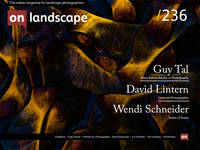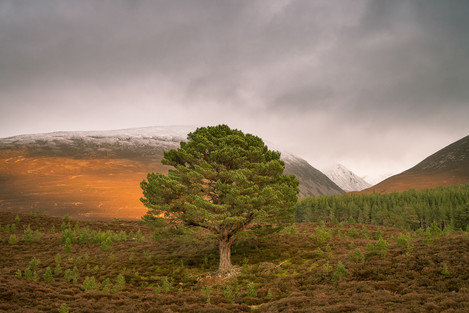Featured Photographer

David Lintern
David Lintern is a photojournalist, photography tutor and writer living and working in the Scottish Highlands. His words and pictures appear widely in environmental and access campaigns as well as news and outdoors media. He’s the author of The Big Rounds, a social history guidebook about fell running.

Michéla Griffith
In 2012 I paused by my local river and everything changed. I’ve moved away from what many expect photographs to be: my images deconstruct the literal and reimagine the subjective, reflecting the curiosity that water has inspired in my practice. Water has been my conduit: it has sharpened my vision, given me permission to experiment and continues to introduce me to new ways of seeing.
Some of you may remember David’s name in the context of the campaign against the planning application for run-of-river hydro developments within the designated wildland areas of Glen Etive in 2020. As well as writing, David photographs, teaches and yes, campaigns, on other matters too. It would be easy to think that passionate advocacy for nature stems from early exposure to it, but in David’s case, this was limited. That’s clearly no longer so, and as well as changing his outlook on life, it’s led to a new career and a new home. He talks about photography as a tool for investigation, rather than being about possession.
Would you like to start by telling readers a little about yourself – where you grew up, your education and early interests, and what that led you to do?
Hi and thanks for asking me to contribute. I currently live in the Cairngorms with my young family and work across Scotland. I’m lucky to have a mix of work including photographic teaching and guiding, a little commercial work for local businesses, as well as writing and photographing stories for the outdoors press, environmental organisations and newspapers.
None of this was a given and the road has been circuitous! I grew up on a new build estate in Wrexham and then the sub/urban fringes of South London. Horizons were limited in more ways than one. Education was a way out and I was the first of my family to go to university. I was lucky that my mum supported my escape plan despite pressures to the contrary.
I’m not formally trained in the arts, but I’ve always had broad interests, especially where the arts and politics intersect. I studied social sciences at Leeds at the time when the sociology department was co-chaired by a Polish survivor of the Warsaw Ghetto and a feminist criminologist and lawyer. Music was my real passion, and over time the mixing desk and sampler became my instruments of choice. After a decade working as a cinema projectionist and audio engineer across arts venues in London in the late 90s and early 2000s, I retrained as a community music practitioner and eventually started my own small charity working in a rehabilitative arts setting with unaccompanied asylum seekers. It was easily the most useful I’d been as a musician. It also gave me new skills in fundraising and third sector organization, which enabled my move to Edinburgh a decade ago. We moved to the Highlands about 4 years ago.


